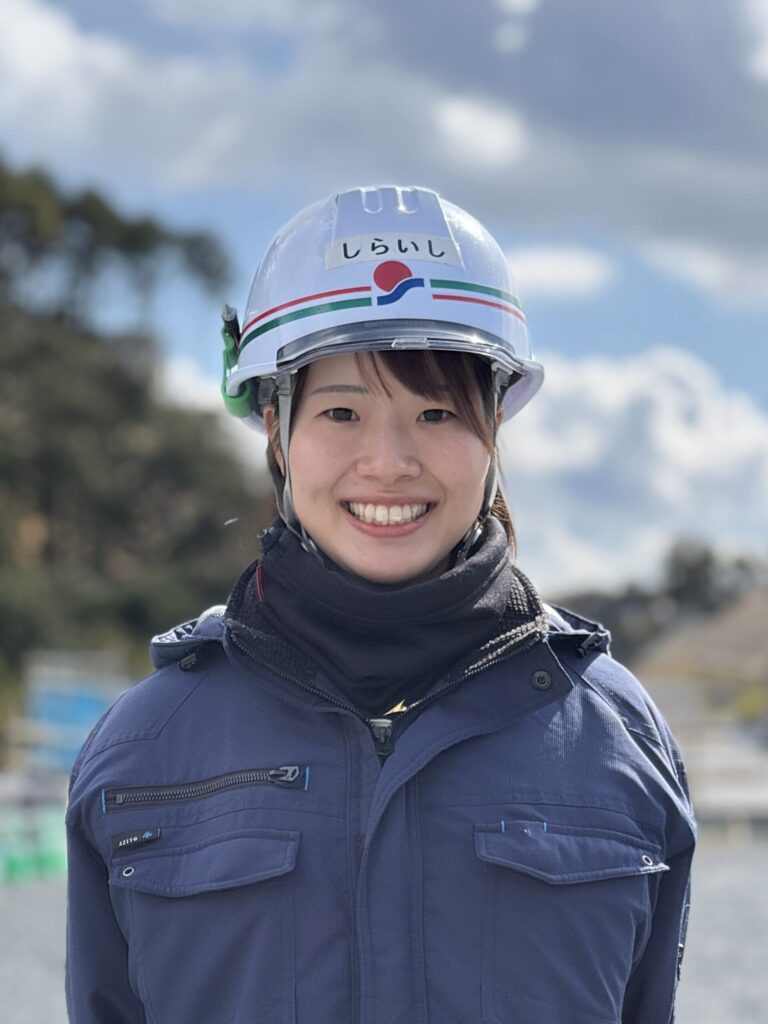Course Features
What is the Urban Infrastructure and Environment Course?

The course of study in the Program of Civil Engineering (Urban Infrastructure and Environment Course), under the theme of “Urban Disaster Prevention and Resuscitation,” trains students to become leadership professionals with the ability to look at social infrastructure systems from a global perspective through a broad study of people (urban, transportation, spatial information), nature (environment, disaster prevention, resilience) and objects (design, materials, maintenance and management). The program is designed to nurture engineers with leadership skills and the ability to see the big picture of social infrastructure systems.
Field-specific subject groups (sub-courses)
Cities, Transportation, and
Geoinformatics
Focusing on human activities in cities, students will learn how to find and solve problems related to traffic congestion mitigation, rail congestion reduction, and smart urbanization.

Urban & Environmental
Considering comfortable living for the next generation
Environment and Disaster Resilience
Focusing on urban environment and disaster prevention, students will learn how to identify and solve problems related to water environment and environmental changes, landslides, earthquake disasters, and liquefaction.

Safety and Disaster Prevention
Protecting people’s lives with social infrastructure

Ecology
Coexistence with the Earth
Materials, Structures, and Maintenance
Focusing on structural design and construction and social infrastructure development, students will learn about problem identification and solutions for the development and maintenance of social infrastructure.

Societies
Navigating Japan’s Future
Course Introduction Video
Study and Research
Curriculum (Main Courses)
1st
Learn about the role of civil engineering in society in relation to mathematics, information, economics, and the environment
Freshman Seminar / Introduction to Environmental Science / Geotechnical Engineering 1 / Civil Engineering and Economics / Data Processing in Civil Engineering / Mathematics for Civil Engineering 1
2nd
Urban, transportation, earthquake, bridges, flood, materials, surveying, etc. Learn the basics of civil engineering.
Introduction to Mechanics in Civil Engineering / Introduction to Hydraulics / Material Design / Geotechnical Engineering 2 / Urban Planning / General Lectures on Civil Engineering / Surveying Practice 1·2 / Hydraulics
3rd
Learn how to solve social problems from research activities and specialized course lectures and exercises
Experiments in Construction Materials / Experiments in Geomaterials / Experiments in Hydraulics / Experiments in Civil Engineering Applications / Career Seminar in Civil Engineering / Exercises on Geotechnical Engineering / Design Exercise of Civil Engineering Structures / Graduation Thesis 1·2
4th
Learn advanced technologies of civil engineering as integrated engineering, transcending the fields of laboratories.
Graduation Thesis 3·4

Click here for curriculum details.
research laboratories
- STEEL STRUCTURE Laboratory
- Geotechnical Engineering Laboratory
- Material Design Laboratory
- Transportation Science Laboratory
- Social and Educational Psychology Laboratory
- Concrete Structure Laboratory
- Laboratory for Earthquake-disaster Mitigation
- Present-day English Grammar and Usage
- Geoinformatics Laboratory
- Economics Laboratory
- Geomechanics Laboratory
- Hydrology
- Social Infrastructure Management Laboratory
- Mathematics Education Laboratory
- River and Environmental Engineering Laboratory
- Sociology of Education Laboratory
- Mobility and Infrastructure Laboratory
※Lab information is for the year 2024.
Career and Employment
Employability Ranking at Top 400 Companies
“Employability Ranking at Top 400 Companies” is based on the Nikkei Stock Average Index, company size, name recognition, and ranking of the most popular companies among university students. Shibaura Institute of Technology was ranked 12th in Japan and 5th among private universities in the 2023 ranking published by DAIGAKUTSUSHIN Corporation, which surveyed the top 400 companies in Japan. In addition, it was ranked 4th among universities with more than 1,000 graduates.
Employability Ranking at Top 400 Companies (among private universities)

THE World University Rankings 2024
THE (Times Higher Education) has been providing “THE World University rankings” every year since 2004. It uses the data from universities and ranks with the following indicators: teaching (the learning environment); research environment (volume, income and reputation); research quality (the outputs of research); industry (knowledge transfer) and international outlook (staff, students and research). The table shows the ranking of the major private universities in Japan. Shibaura Institute of Technology was ranked 4th in the research environment ranking and it was ranked 6th in the international outlook.
THE World University Rankings 2024 (major private universities)



